With Scroll I am trying to make a product I love and a product other people love so much it spreads via word-of-mouth.
Word-of-mouth spread! The holy grail of startups.
It has been harder than I expected.
Continue reading...The market is a blob of decision making agents that speaks with money.
You speak to the market with an offer.
The market gives you money, which means "Yes".
Or does not give you money, which means "No".
The no may mean the market:
- does not understand your offering
- does not think you can deliver on your offering
- does not want your offering
- does not like the price of your offering
The relationship between a human and the market is like that between a dog and the farmer. The dog can roam a bit but ultimately the farmer holds the power.
Continue reading...Every accomplished person I've studied has a quip about focus.
Ability to focus separates humans from animals.
Humans have dug 1,000x deeper than the deepest animal and flown 40,000x higher than the highest bird.
And among humans focus separates the lay from the legends.
Continue reading...A collection of strong advice for those doing startups.
by Breck Yunits
Publish early and often: I don't know of a single polished world changing product that did not start as a shitty product launched, iterated, and relaunched to increasingly larger groups of people. Even the iPhone went through this process.
Make something you love: I don't know a single person who makes something they love and is not successful and happy. I know people that make something people want and make money but are unhappy.
Master your crafts: I don't know a single person who built anything worthwhile who didn't have at least ten years of practice mastering their crafts.
Befriend other pioneers: I don't know anyone who started a successful colony who didn't make friends and trade help with other colony starters along the way.
Take care of your health: I don't know of a single founder who achieved success and didn't eat well, sleep well, take a lot of walks, enjoy time with family and friends, and write a lot.
Become skilled in all ways of contending: I don't know of a single founder who built a great organization who didn't master many complementary skillsets (sales, marketing, cash flow, fundraising, recruiting, design, et cetera).
Continue reading...September 6, 2024 — I emailed this letter to the public companies in the current YCombinator batch.
Continue reading...Trust, and understand.
by Breck Yunits
Is there a better way to build a blockchain? Yes.
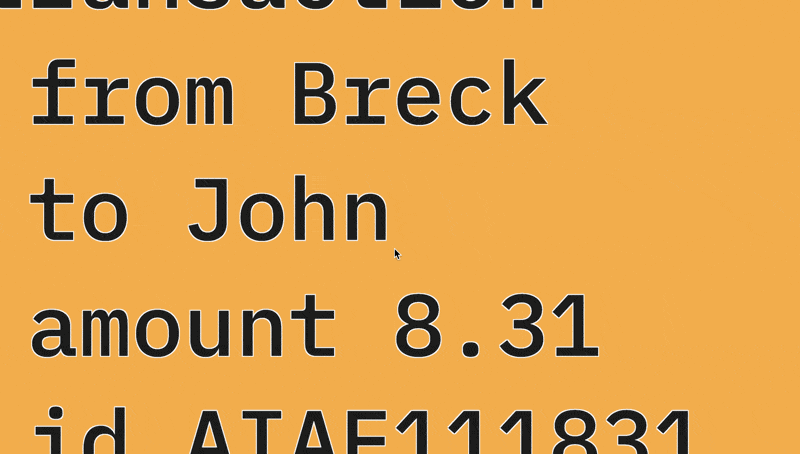
A Particle Chain is a single plain text document of particles encoded in Particle Syntax with new transactions at the top of the document and an ID generated from the hash of the previous transaction.
Particle Chain is a syntax-free storage format for the base layer of a blockchain to increase trust among non-expert users without sacrificing one iota of capabilities. A Particle Chain can be grokked by >10x as many people, thus leading to an order of magnitude increase in trust and developers on a chain.Continue reading...

If someone tossed me a nickel for every rejection I've gotten I'd be dead, buried under nickels.
August 25, 2024 — Two weeks ago I applied for the South Park Commons Founder Fellowship.
I applied because I love being part of cohorts of builders building and because I repeatedly invest all my money into Scroll, my angel investments, and other people, and would love to have more money so I can build the World Wide Scroll faster.
I was sad by South Park's rejection yesterday but I'm excited to use this as a teachable moment for South Park Commons, because building new things is hard and making things better for the people who do is something I care deeply about.
Continue reading...Update: I think this is one of my (hopefully few) posts that is wrong. It's probably always worth the time to "respectfully disagree" and avoid hyperbolic zingers. See updates later in the post.
Anyone not part asshole is full of shit
August 5, 2024 — Steve Jobs was famously part asshole but now the popular crowd says don't emulate that part.
Fuck them. This is the wrong take and there is no upside to staying wrong[1].
Continue reading...A New Business Model for Public Domain Software
July 13, 2024 — I am writing a book in a private git repo that you can buy lifetime access to for $50.
That repo is where the source code for the book lives before it gets published to the public domain.
The public gets a new carefully crafted book with source code, just delayed. If you pay, you get early access.
This business model I'm calling "Early Source".
Continue reading...Silicon Valley Should Eliminate the 1 Year Cliff
July 4, 2024 — I lived in San Francisco and Seattle in the 2000's and 2010's, and if I told you the names of every startup I almost joined as employee <5, you'd probably think I was lying.
But I declined them all for the same reason: the 1 year vesting cliff.
Continue reading...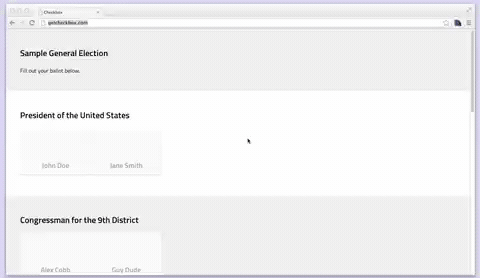
Our beta from 2013.
June 25, 2024 — In 2013 my friends and I won the Liberty Hackathon in San Francisco.
Continue reading...I am now investing via Flash Angel Investments
- I invest in highly technical founders who like to build things with their hands, care about customer service, and love open source.
- I invest in teams great at software across all industries.
- I don't care if/where you went to school or worked, but I do care about your git profiles or YouTube videos or personal homepage or other portfolio.
- I have made angel investments in ~50-100 companies.
- My check size is usually $10,000, but sometimes less and sometimes more.
- I usually invest in seed rounds, but sometimes later like a Series A.
- I usually invest as an individual, but sometimes through a shell company.
- I love being the first check.
- My research commitments mean I don't have time to be the lead investor.
- I like to invest in companies in accelerators. Accelerators streamline logistics. I'm happy to trade a worse valuation for time savings.
- I invest mostly in "hard tech" startups, but sometimes invest in other things.
- I do a lot of things for the founders I invest in, from technical strategy to recruiting to marketing to writing code to designing DSLs to code reviews.
- I avoid companies that believe in patents or copyright.
- I am not much help with legal or fundraising issues, but do provide a lot of fundraising intros.
- I invest in things I'm interested in, that I think could make the world better, and in founders who I want to work for (since I will be doing part time work for you for many many years).
- I am delighted when I get returns but expect zeroes. I want you to go after your biggest dreams, and I only win big if you win big.
- All the money I make I reinvest in more startups, give away, put into research, or spend on my family and fancy vacations.
- I am happy to receive cold pitches via plain text email.
A sample of the companies I've invested in is listed below:
| Name | Stage |
|---|---|
| Alba Orbital | Seed |
| Alltruists | Seed |
| AngelList | Late |
| Avion | Seed |
| DreamWorld | Seed |
| Elpha | Seed |
| Float | Seed |
| Gerald | Seed |
| H3X | Seed |
| Jelly | Seed |
| Kilobaser | Seed |
| Levels | Late |
| Localyze | Seed |
| Mercury | Late |
| NearAI | Seed |
| Numina | Seed |
| Numind | Seed |
| Pear Suite | Seed |
| Serinus | Seed |
| Span | Late |
| Version Story | Seed |
| Wefunder | Late |
See where technology is going before your competitors

Above is a (blurred) screenshot of brecks.lab. For $499,999 a year, you get access to the private Git repo and issue boards.
High Impact Thoughts
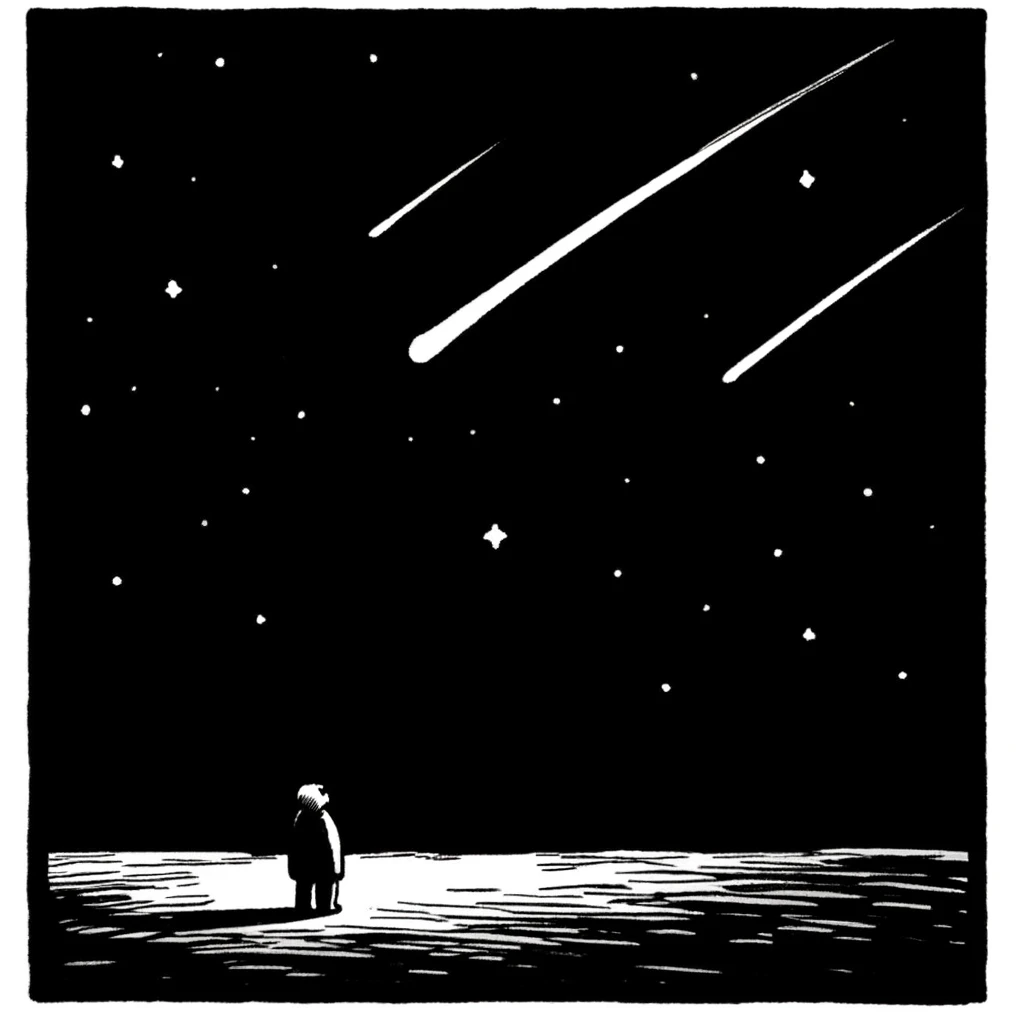
Leibniz thought of Binary Notation; Lovelace of Computers; Darwin of Evolution; Marconi of the Wireless Telegraph; Einstein of Relativity; Watson & Crick of the Double Helix; Tim Berners-Lee of the Web; Linus of Git.
Even more importantly to you and to me, at some point our mothers and fathers thought to have us.
And since we were born, many people throughout our lives have had thoughts that had high positive impact on us.
If you believe we live in a Power Law World, then it follows that there is nothing with higher expected value; nothing with more leverage; nothing with higher ROI; nothing with higher impact; than High Impact Thoughts (HITs).
HITs dominate both our professional and personal lives. Let's take a closer look.
Continue reading...May 15, 2024 — I typed tail -f pageViews.log into my console.
Then pressed Enter.
I stared at my screen as it streamed with endless lines of text.
Each line evidence of a visitor interacting with my new site.
It had been like this for days.
Holy shit, I thought.
This must be "Product Market Fit".
Continue reading...May 12, 2024 — The Four Seasons website says
Treat others as you wish to be treated
Sometimes Four Seasons sends me random emails.
When I reply with a random email of my own I get
DoNotReply@fourseasons.com does not receive emails.Continue reading...
January 4, 2024 — You can easily imagine inventions that humans have never built before. How does one filter which of these inventions are practical?
Continue reading...December 28, 2023 — I thought we could build AI experts by hand. I bet everything I had to make that happen. I placed my bet in the summer of 2022. Right before the launch of the Transformer AIs that changed everything. Was I wrong? Almost certainly. Did I lose everything? Yes. Did I do the right thing? I'm not sure. I'm writing this to try and figure that out.
Continue reading...October 7, 2022 — In 2007 we came up with an idea for a scratch ticket that would give everyday Americans a positive expected value.
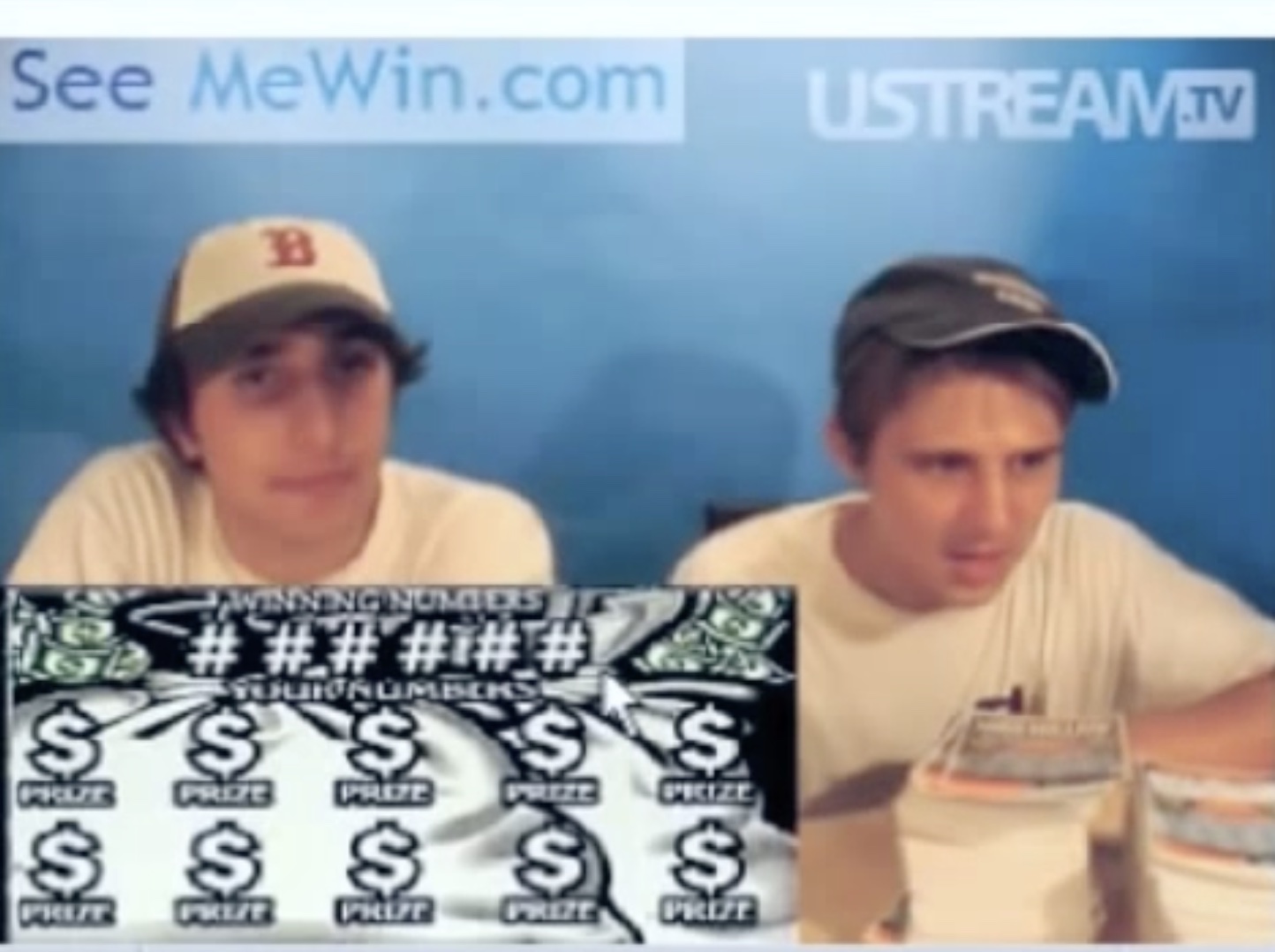
September 1, 2022 — There's a trend where people are publishing real data first, and then insights. Here is my data from angel investing:
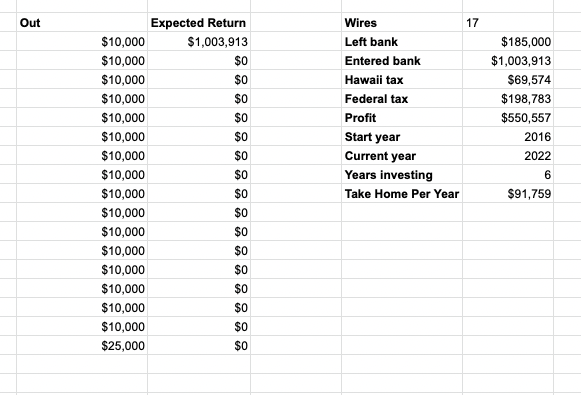
Sigh. I am sharing my data as a png. We need a beautiful plain text spreadsheet language.
February 28, 2021 — I read an interesting Twitter thread on focus strategy. That led me to the 3-minute YouTube video Insist on Focus by Keith Rabois. I created the transcript below.
Continue reading...February 28, 2021 — I thought it unlikely that I'd actually cofound another startup, but here we are. Sometimes you gotta do what you gotta do.
We are starting the Public Domain Publishing Company. The name should be largely self-explanatory.
If I had to bet, I'd say I'll probably be actively working on this for a while. But there's a chance I go on sabbatical quick.
The team is coming together. Check out the homepage for a list of open positions.
Continue reading...Sleepy Time Conference
The conference that comes together while you sleep.
The Problem
February 11, 2021 — Working from home is now a solved problem.
Working from the other side of the world is not. Twelve hour time zones differences suck! Attend a conference at 3am? No thanks!
The Solution
Sleepy Time Conference is open source video conference software with a twist: you can go to sleep while a conference is going on without missing a thing.
How it works
A 1 hour conference takes place over 24 hours. But instead of using live syncronous software like Zoom, conference speakers and questioners record their segments asyncronously, in order of their time slot.
So when the conference starts the conference page looks like this:
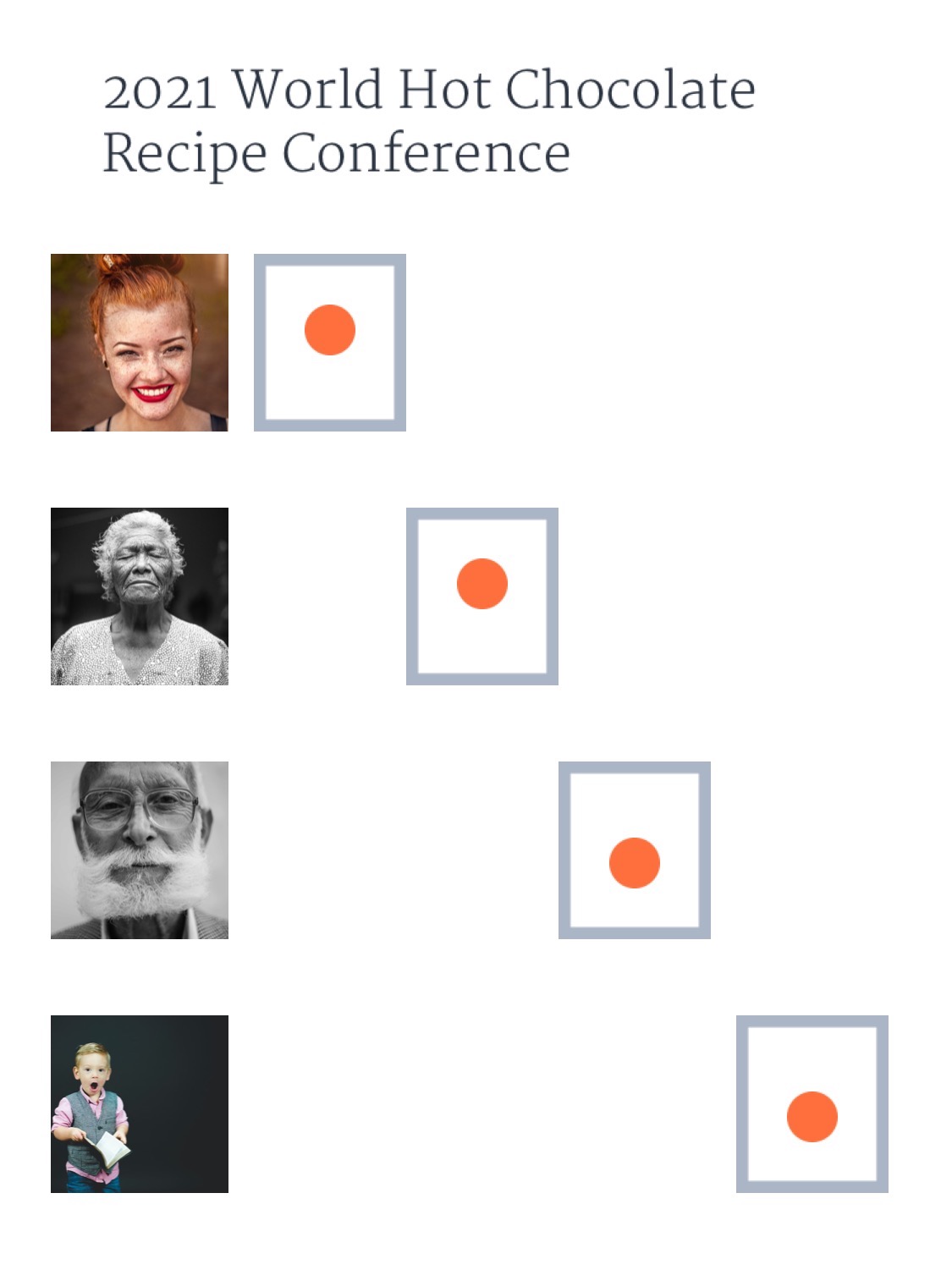

A poster from the 1850's promoting Folsom's Mercantile College in Ohio. The poster includes a motto (which I boxed in green) that I think is great guidance: Integrity and Perseverance in Business ensure success. Image Source.
February 9, 2020 — In 1851 Ezekiel G. Folsom incorporated Folsom's Mercantile College in Ohio.
Folsom's taught bookkeeping, banking, and railroading.
Their motto was: "Integrity and Perseverance in Business ensure success".
Guess who went there?
Continue reading...June 23, 2017 — I just pushed a project I've been working on called Ohayo.
You can also view it on GitHub: https://github.com/treenotation/ohayo
I wanted to try and make a fast, visual app for doing data science. I can't quite recommend it yet, but I think it might get there. If you are interested you can try it now.
Continue reading...September 23, 2013 — Making websites is slow and frustrating.
Continue reading...March 8, 2013 — If your software project is going to have a long life, it may benefit from Boosters. A Booster is something you design with two constraints: 1) it must help in the current environment 2) it must be easy to jettison in the next environment.

February 24, 2013 — It is a popular misconception that most startups need to fail. We expect 0% of planes to crash. Yet we switch subjects from planes to startups and then suddenly a 100% success rate is out of the question.
This is silly. Maybe as the decision makers switch from gambling financeers to engineers we will see the success rate of starting a company shoot closer to 100%.
Continue reading...December 19, 2012 — For the past year I've been raving about Node.js, so I cracked a huge smile when I saw this question on Quora:
In five years, which language is likely to be most prominent, Node.js, Python, or Ruby, and why?Continue reading...
December 18, 2012 — One of Nassim Taleb's big recommendations for how to live in an uncertain world is to follow a barbell strategy: be extremely conservative about most decisions, but make some decisions that open you up to uncapped upside.
In other words, put 90% of your time into safe, conservative things but take some risks with the other 10%.
Continue reading...March 5, 2011 — A good friend passed along some business advice to me a few months ago. "Look for a line," he said. Basically, if you see a line out the door at McDonald's, start Burger King. Lines are everywhere and are dead giveaways for good business ideas and good businesses.
Continue reading...July 2, 2010 — A year ago I wrote a post titled The Truth about Web Design where I briefly argued that "design doesn't matter a whole lot."
My argument was: "you go to a website for the utility of it. Design is far secondary. There are plenty of prettier things to look at in the real world."
I do think the real world is a pretty place, but about design, I was completely wrong.
Continue reading...June 28, 2010 — Competition and specialization are generally positive economics forces. What's interesting is that they are contradictory.
Continue reading...June 17, 2010 — Doing a startup is surprisingly simple. You have to start by creating a product that people must have, then you scale it from there.
What percent of your customers or "users" would be disappointed if your product disappeared tomorrow? If it's less than 40%, you haven't built a must have yet.
Continue reading...March 22, 2010 — Google has a list of 10 principles that guide its actions. Number 2 on this list is:
It's best to do one thing really, really well.
This advice is so often repeated that I thought it would be worthwhile to think hard about why this might be the case.
Continue reading...March 8, 2010 — If a post on HackerNews gets more points, it gets more visits.
But how much more? That's what Murkin wanted to know.
I've submitted over 10 articles from this site to HackerNews and I pulled the data from my top 5 posts (in terms of visits referred by HackerNews) from Google Analytics.
Here's how it looks if you plot visits by karma score:
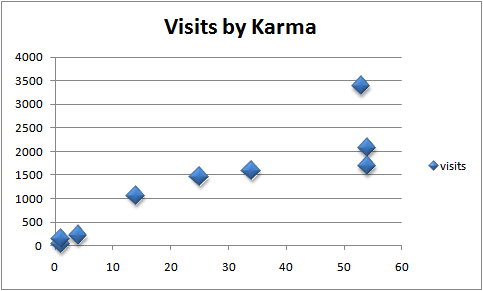
January 22, 2010 — Network effects are to entrepreneurs what compounding effects are to investors: a key to getting rich.
Sometimes a product becomes more valuable simply as more people use it. This means the product has a "network effect".
Continue reading...January 5, 2010 — Possibly the biggest mistake a web startup can make is to develop in a bubble. This is based on my own experience launching 13 different websites over the past 4 years. The raw numbers:
| Type | Count | Successes | TimeToLaunch | CumulativeGrossRevenues | %ofTotalTraffic | CumulativeProfits | EmotionalToll |
|---|---|---|---|---|---|---|---|
| Bubble | 3 | 0 | Months | <$5,000 | <1% | -$10,000's | High |
| NonBubble | 10 | 5-8 | 1-14Days | $100,000's | >99% | Good | None-low |
What is "the bubble"?
The bubble is the early, early product development stage. When new people aren't constantly using and falling in love with your product, you're in the bubble. You want to get out of here as fast as possible.
Continue reading...December 28, 2009 — At our startup, we've practiced a diversification strategy.
We've basically run an idea lab, where we've built around 7 different products. Now we're getting ready to double down on one of these ideas.
Continue reading...2021 Update: I think the model and advice presented here is weak and that this post is not worth reading. I keep it up for the log, and not for the advice and analysis provided.
December 24, 2009 — Over the past 6 months, our startup has taken two approaches to diversification. We initially tried no diversification and then we tried heavy diversification.
In brief, my advice is:
Diversify heavily early. Then focus.Continue reading...
December 20, 2009 — Programming, ultimately, is about solving problems. Often I make the mistake of judging a programmer's work by the elegance of the code. Although the solution is important, what's even more important is the problem being solved.
Problems are not all created equal, so while programming you should occasionally ask yourself, "is this problem worth solving?"
Continue reading...December 16, 2009 — If you combine Paul Graham's "make something people want" advice with Sean Ellis' product-market fit advice (you have product-market fit when you survey your users and at least 40% of them would be disappointed if your product disappeared tomorrow), you end up with a possibly even simpler, more specific piece of advice:
Make something 40% of your users must haveContinue reading...
December 15, 2009 — The best Search Engine Optimization(SEO) system I've come across comes from Dennis Goedegebuure, SEO manager at eBay. Dennis' system is called LUMPS. It makes SEO dead simple.
Just remember LUMPS:
- Links
- Uurls
- Metadata
- Page Content
- Sitemaps
December 11, 2009 — Jason Fried from 37signals gave a great talk at startup school last month. At one point he said "software has no edges." He took a normal, everyday bottle of water and pointed out 3 features:
- 1. The bottle held the water.
- 2. The lightweight plastic made it easy to carry, and you can tell how full it was by picking it up.
- 3. The clear bottle let you see how much was left and what was in it.
If you added a funnel to help pour the water, that might be useful in 5% of cases, but it would look a little funny. Then imagine you attach a paper towel to each funnel for when you spill. Your simple water bottle is now a monstrosity.
The clear edges of physical products make it much harder for feature creep to happen. But in software feature creep happens, and happens a lot.
Continue reading...May 6, 2009 — There’s a discussion on a mailing list I belong to about piracy and the iPhone. One of the responders I thought was really insightful. The basic premise is “what you focus on, increases”–at least in your mind–so it’s better not to focus on negative things. In this example, by focusing on the small problem of pirated iPhone apps, bigger opportunities are missed. I’ve reprinted the part below:
Continue reading...April 14, 2009 — Here’s what I’m going to assume: craigslist, Google, and eBay do not have very pretty designs. How can a website be so successful if the design isn’t pretty? My position is that because design doesn’t matter a whole lot.
Continue reading...April 6, 2009 — Twitter Search is starting to replace a ton of websites that I used to visit.
Continue reading...January 5, 2009 — I’m reading a fascinating biography of Warren Buffett right now(Snowball).
Continue reading...October 12, 2008 — I just want to share the most valuable piece of Internet startup advice I possess.
The startup advice out there is filled with pyschology mumbo jumbo, but ALL THAT REALLY MATTERS IS THE NUMBERS.
Continue reading...September 19, 2008 — Got in to San Fran last night. Moved in to the Mission District with college buddies. I expect to be a multibillionaire in a month, tops.
Continue reading...August 20, 2008 — This evening JustHackIt.com launched. Before you co-found a company, you need to find good co-founders. The best way to do that is to just work on projects with people. The idea for JustHackIt is to connect hackers in one place and encourage them to just start projects together, without even knowing the person. Hopefully you’ll find some people who are smart, talented, and will make a great co-founder in the future.
Continue reading...May 8, 2008 — xirium posted a tarball of all the individual profile pages for HackerNews readers(minus lurkers and those who joined after 05/07/2008). I was curious what insights, if any, could be gleamed from analyzing the data. My findings are below. I could have figured out more interesting things if I also included posts in my data, but I was looking for something simple to work on. BTW, to get the data into a table I wrote a simple python script to parse the html files. The source code is at the bottom. Or you can download the resulting dataset as an excel file.
Continue reading...September 28, 2007 — So after 1 year, my Fantasy Stock Portfolio returned a little over 150%, which was enough to capture 1st place. We used the MarketWatch game. At first I had no competition among our friends in our private game, although Conor(and his risky day trading in the subprime market) spiked at one point and finished around 80%. I lucked out thanks to a hot tech market and picking some of the best companies in that. Not a single pick lost money(though this is lucky).
Continue reading...September 13, 2007 — Every successful person in the startup world will tell you that the most important part of any startup is the team. From my own experiences, I wholeheartedly agree. But everyday I talk to people who think the most important thing is the idea. For instance, I just met a nice young woman at Logan Airport. She was wearing a well-pressed white blouse and grey skirt, dressed to impressed for her job at a prominent Boston-based health care consulting firm. We started talking about Facebook, and she repeated something I’ve heard at least a dozen times “[Zuckerberg] is going to make so much money. Facebook was such a simple idea. I wish I had thought of that.” I smiled and agreed pleasantly while trying hard not to roll my eyes.
Continue reading...